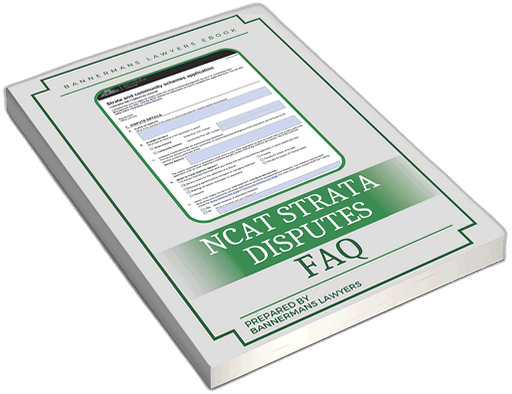What are the typical strata disputes and why?
Posted 18 May 2024
Category: NCAT and Court Proceedings, eBooks
Strata disputes can arise for various reasons, often due to differing interpretations of by-laws, personal conflicts, or concerns about the management of the property. Here are some common examples of strata disputes and potential reasons they may arise:
1. Renovations
2. By-law Breaches:
3. Financial Disagreements:
4. Maintenance and Repairs:
5. Management Concerns:
6. Behavioural Issues:
7. Access and Use of Common Property:
8. Pets and Animals:
9. Appearance and Aesthetics:
10. Health and Safety:
Understanding, respecting, and actively participating in the strata community can help reduce the chances of conflicts.
Further, obtaining advice about your rights and obligations with respect to strata living can assist with minimising the likelihood of conflict.
Strata Disputes Advice
Strata committees & lot owners
***The information contained in this article is general information only and not legal advice. The currency, accuracy and completeness of this article (and its contents) should be checked by obtaining independent legal advice before you take any action or otherwise rely upon its contents in any way.

This is an extract from our Bannermans NCAT Strata Disputes ebook.
To access more FAQ'S on NCAT Strata Disputes fill in the below form to download our Bannermans NCAT Strata Disputes ebook for free.

